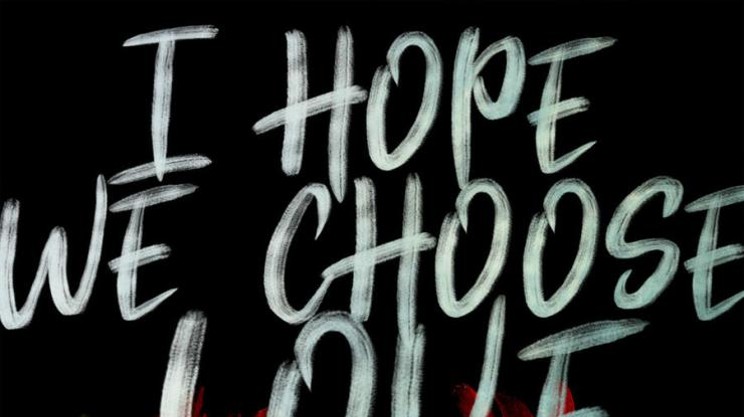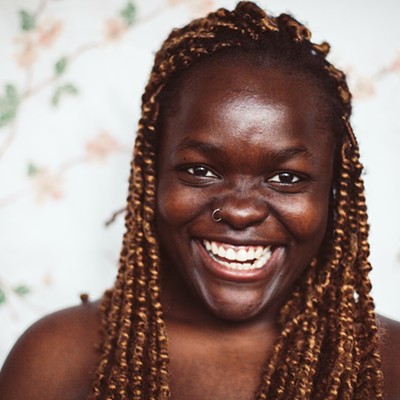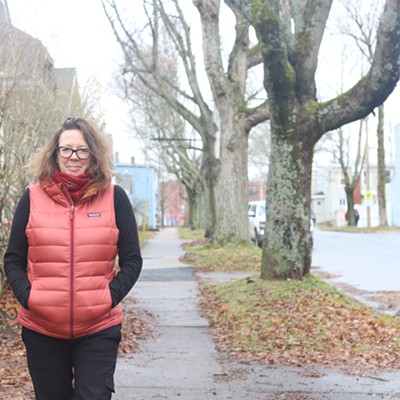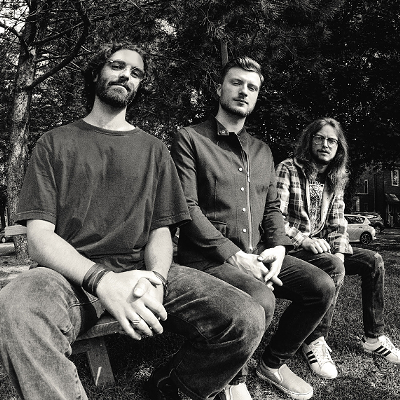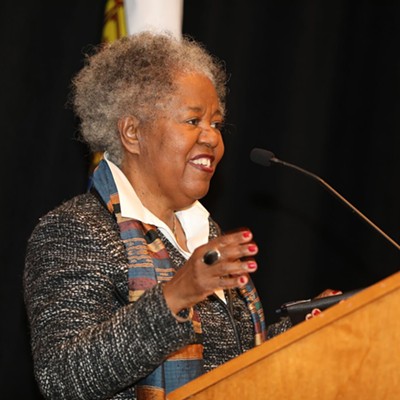
Twist says her work is "specifically for Indigenous, trans people," describing it as "Messy, queer, trans, feminine, Indigenous art. It’s very honest, which I think makes it kind of short and to-the-point, in a way. It’s messy, and fun, and cool—and most of it talks about sex, which is fun."
"I remember just writing it in the middle of the night, just smoking cigarettes in my bedroom," she recalls of the her process for Disintegrate/Dissociate.
"I don’t know what it was about poetry; I wasn’t a big reader of poetry. There was something so beautiful in saying something so profound in such little words. I think poetry gives me: It was the first time I was like Oh, someone’s hearing me think," she adds. "It kind of made me feel less alone, I think it’s really beautiful in how emotion is conveyed through poetry."
In short, she’s been doing this work—and excelling at it. Her latest triumph—winning an Indigenous Voices Award in the published poetry category earlier this summer—should be the final piece of evidence needed to convince you that it’s time to catch up to where Twist has been this whole time.
In short: It's time for you to hear her think.
To that end, The Coast called Twist and asked her to dissect a poem from Disintegrate/Dissociate. Here, she takes us through her poem “MANIFEST” line by line:
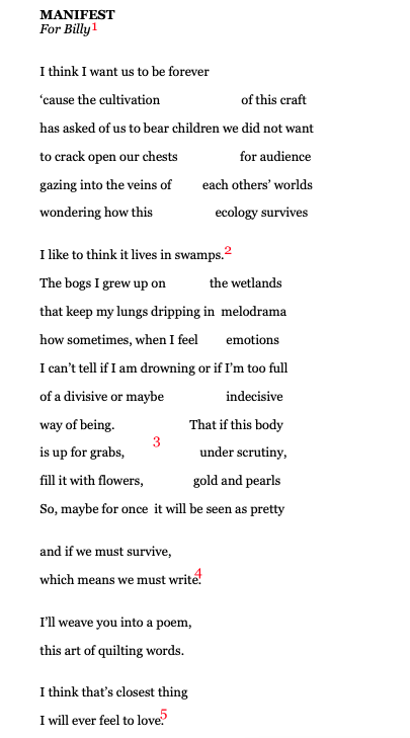
Belcourt's book “changed my life," Twist adds. "It was a young, queer Native person who’s Cree—I’m also Cree—writing about The Prairies and writing about love and pain and I was like, I want to do that."
2.
Twist adds: "I wanna talk about the swamps and the land. I always bring it back to the land or my body in every poem that I write."
3.
4. "We"—meaning she and Belcourt—"had a conversation at Banff about how writing saved our lives, so 'if we must survive/which means we must write/I'll weave you into a poem/this art of quilting words' is me saying I’m writing this about you," Twist says.
"Writing gave me access to so much. It gave me access to community, to a community of trans women of colour that didn’t really exist in Halifax. And it gave me a community of Indigenous people which at the time, I was 22, and I didn’t have those things: I didn’t have Indigenous, trans women in my life, I didn’t have community," she adds when asked how, exactly, writing saved her life.
5.What one line captures the entire poem? Twist says it's the closing line: It's her "saying I’m writing this about you and this is because this is what I think love is." She adds: "It’s like, I don't know if I know what love feels like, so this is the closest thing that I would feel to it."



